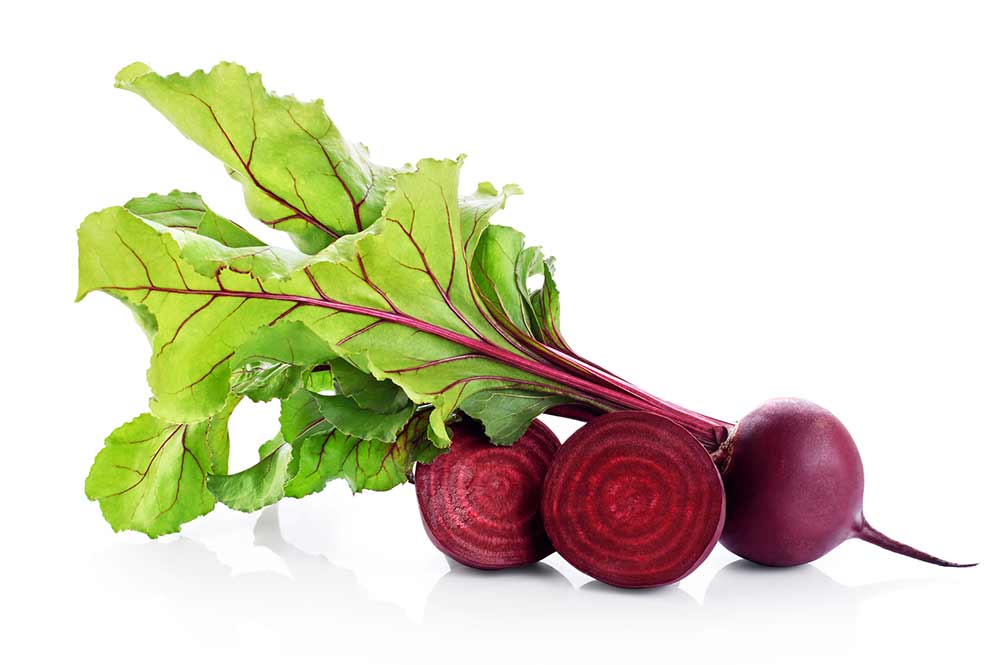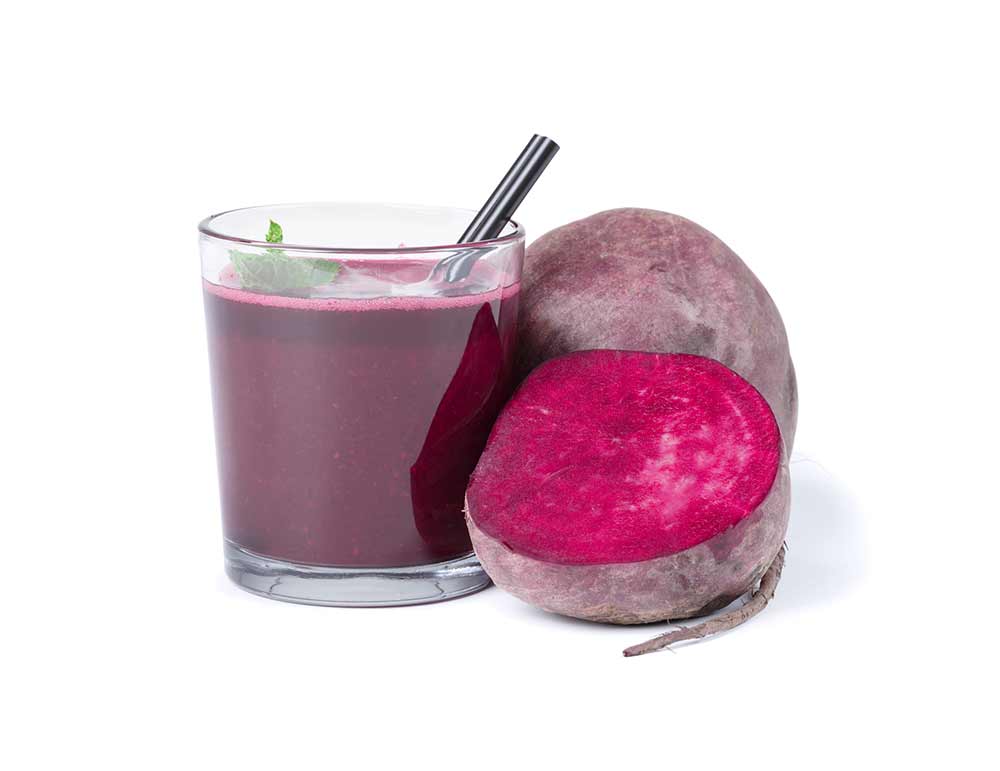By MACROS | Published on April 24, 2014
Beets have recently been gaining in popularity. There’s hardly a restaurant now that doesn’t offer some form of a beet-based meal on the menu.
But the increased demand isn’t just due to their great taste, they also have enormous performance and physique benefits. And this is backed up by a plethora of clinical studies. So here’s why you should be supplementing with beet extract.
The Basics
Beets, also referred to as beetroot, go by the scientific name beta vulgaris. They are a root plant that’s widely cultivated in North America, Central America and Europe. Their red coloring is from the plant chemicals known as betacyanins, which include betanin, isobetanin, probetanin and neobetanin. These provide beets a host of benefits, such as antioxidant properties. In addition, beets are a rich source of the B-vitamin folate, betaine and nitrates.
It’s speculated that the performance benefits from beets are due to the betaine and nitrates. Betaine (trimethylglycine) is a methylated form of the amino acid glycine which has been shown to boost muscle strength and power, as well as increase muscle growth.
However, betaine is needed in a dose of over 1g, so it’s unlikely that consuming whole beets, or beet juice would provide an adequate dose of this body booster. To reap the full benefits of betaine, it should be taken in supplement form.
Therefore, the major performance benefits from beets, beet juice or beet extract are mainly the result of the high nitrate content. When you consume nitrate (NO3-), such as from beets, bacteria in the mouth reduce it (cause it to lose an oxygen molecule) to form nitrite (NO2-).
The nitrite then travels to the bloodstream, where it loses another oxygen molecule and becomes nitric oxide (NO) in the blood vessel walls. It’s this increase in NO levels that seems to be the key to beets’ athletic benefits.

1. Boosts Nitric Oxide levels
Boosting NO levels is very beneficial for cardiovascular health since it relaxes blood vessels, allowing them to widen. This keeps our blood vessels functioning properly and prevents them from getting ‘stiff’ as we age.
Numerous studies confirm that supplementing with beetroot juice or nitrates significantly lowers blood pressure, even in healthy adults with normal blood pressure. Relaxing or dilating the blood vessels also helps to deliver more blood flow to tissues like muscle fibers.
The two main benefits of greater blood flow to muscle fibers is better exercise energy/endurance and bigger muscles pumps during workouts. One reason for the greater endurance and energy is due to the fact that pushing more blood to working muscles delivers them more oxygen and more nutrients. This allows the muscle fibers to contract stronger and for longer.
More blood flow to the muscles enhances muscle pump during workouts due to the fact the blood contains a high percentage of water. When you train, your muscle cells create waste products that pull water into them. With greater blood flowing to the muscles, there is more water that the muscle cells can draw into them, resulting in a bigger muscle pump.
Research shows the nitrates in beetroot juice can also enhance blood flow to the brain to help improve brain function and fight off cognitive decline with ageing. And as an added bonus it can help increase the sex drive of both men and women.
– RELATED: Sweet Chili Beetroot & Ricotta Filo Tarts Recipe –
2. Enhances your performance
Supplementing with nitrates, usually by consuming beet juice or taking a beet (beta vulgaris) extract has been shown to enhance exercise performance. One of the first studies to discover the power of beets was from the UK.
The researchers found that men receiving 500ml of beetroot juice were able to exercise at a high intensity on a stationary cycle for more than 90 seconds longer than when they took a placebo. Another study reported that female runners receiving 140ml (5oz) of beetroot juice for four days and 2.5 hours before the test were able to complete a 5km run approximately 30 seconds faster than when taking a placebo. The performance benefits from beets, however, is not just due to enhanced blood flow. The majority of studies reporting performance benefits from nitrate-rich beetroot juice also reported a reduction in oxygen cost. That means they were able to perform at the same intensity or higher while consuming less oxygen.
Researchers from the Karolinska Institutet, in Stockholm, Sweden, studied biopsied muscle cells in men who received a nitrate supplement for four days and then performed a stationary cycling exercise test. They reported that the mitochondria of the men’s muscle cells were able to make more ATP (the energy currency of the cells) with less oxygen.

3. Improves strength
To take your training to the next level, consider supplementing with some form of beets. The performance enhancements include greater exercise endurance, greater power output and less fatigue.
This means that during a typical weightlifting workout, it may improve your strength, allow you to complete more reps with a given weight, and allow you to better maintain rep ranges and strength towards the end of the session. And all of this can help to increase muscle strength, muscle growth and muscle endurance. Plus, the benefits it provides your mitochondria means your cardio sessions will seem a lot easier, thus aiding fat loss.
Research suggests a dose of 140–500ml (5–17oz) of beetroot juice is needed. Or look for supplements that provide about 500mg of beet extract per dose. Some pre-workout supplements are now including beet extract to provide these benefits, and I’d advise you take them 30–120 minutes before workouts, and consider taking one dose on rest days from the gym.

